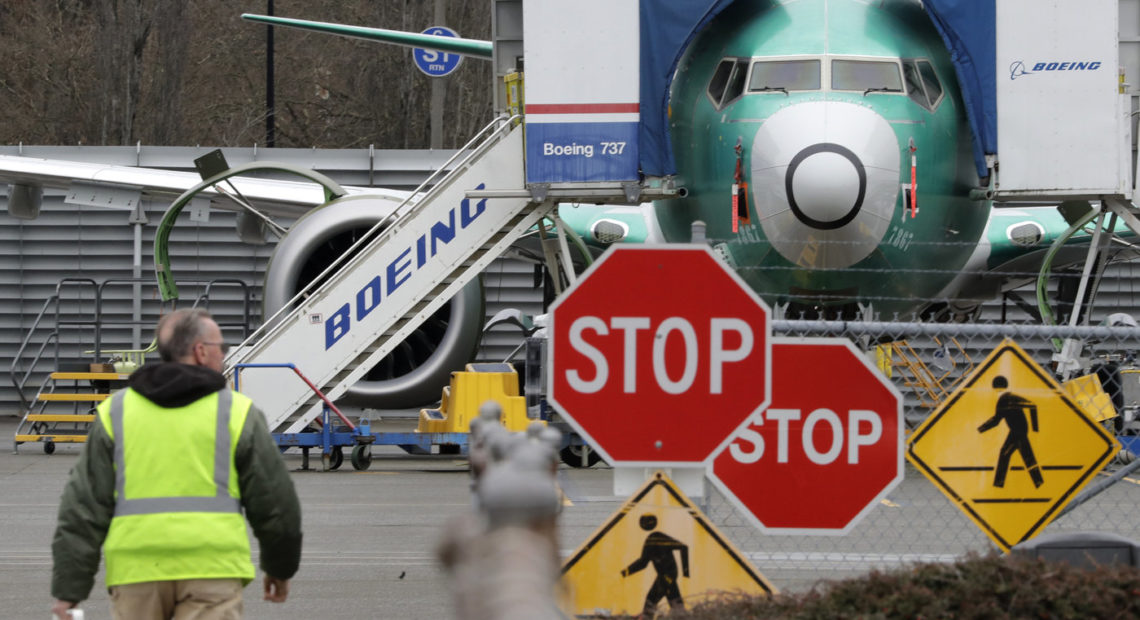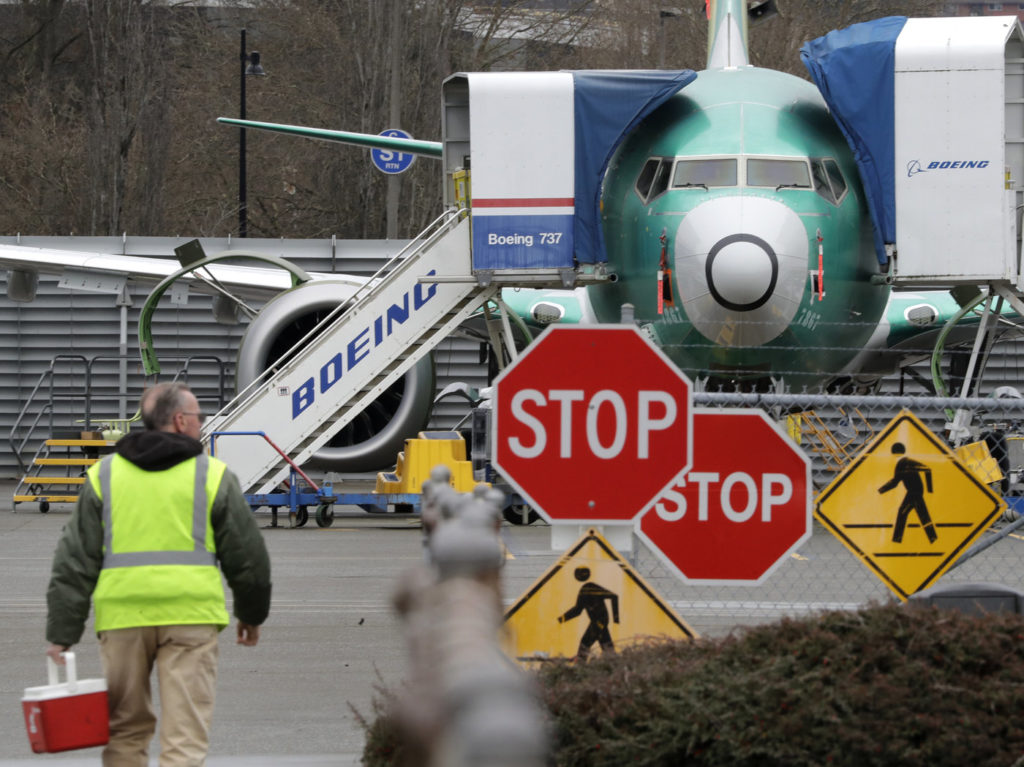
Boeing To Suspend Production Of Grounded 737 Max Jetliners, No Layoffs Expected
BY RICHARD GONZALES
Boeing Corp. will suspend production of its troubled 737 Max jetliner in January, but does not plan to lay off or furlough the workers who build the plane, the company said in a statement Monday.
The Boeing 737 Max jetliners have been grounded worldwide since March in the aftermath of two fatal crashes that killed a total of 346 people. A Lion Air jet crashed in to the Java Sea in October 2018 and an Ethiopian Airlines plan crashed near Addis Ababa in March. The company has said the crashes were caused by software failures.

A Boeing worker walks near a 737 MAX jet on Monday, Dec. 16, in Renton, Wash. Boeing said it will suspend production of the troubled jetliner in January. CREDIT: Elaine Thompson/AP
Since then, the company said it has continued to build about 400 new 737 Max airplanes that currently are in storage.
“We have decided to prioritize the delivery of stored aircraft and temporarily suspend production on the 737 program beginning next month,” the company said. “We believe this decision is least disruptive to maintaining long-term production system and supply chain health.”
As for the production workers, “it is our plan that affected employees will continue 737-related work, or be temporarily assigned to other teams in Puget Sound,” the company said.
KUOW Seattle reported Monday:
“Boeing said it does not expect to furlough or lay off those employees but rather assign them “to other teams in the Puget Sound. Some will stay in Renton, but other could move. How much more of a commute that could mean for those workers is unclear. The other major Boeing plant in the Seattle area is north, in Everett, about an hour and a half drive at shift change.”
Boeing is waiting for Federal Aviation Administration to certify its software fixes. As NPR’s David Schaper reports, FAA certification is not expected until February 2020 at the earliest. Boeing referred to the certification in its statement.
“This decision is driven by a number of factors, including the extension of certification into 2020, the uncertainty about the timing and conditions of return to service and global training approvals, and the importance of ensuring that we can prioritize the delivery of stored aircraft.”
Copyright 2019 NPR. To see more, visit npr.org















